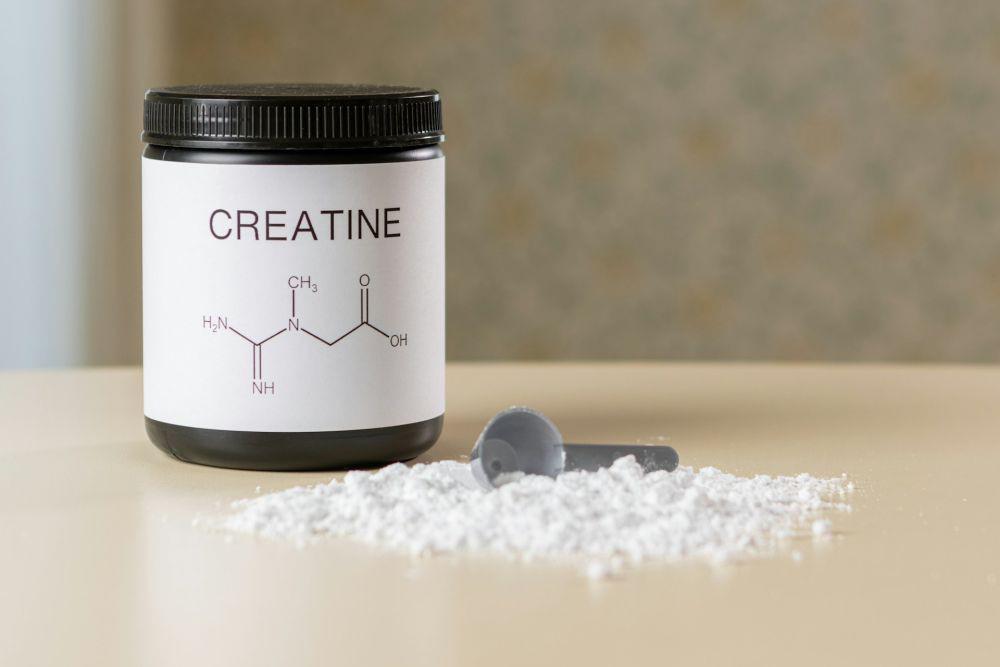Banyak penelitian mendukung keamanan kreatin untuk penggunaan jangka panjang. Uji klinis yang berlangsung hingga 5 tahun melaporkan tidak ada efek samping pada individu yang sehat.
Mengonsumsi 3–5 gram bubuk kreatin monohidrat per hari dianggap aman. Namun, pasien penyakit ginjal sebaiknya berkonsultasi dengan dokter sebelum mengonsumsinya, dan kehati-hatian disarankan bagi orang-orang dengan diabetes dan siapa pun yang mengonsumsi suplemen gula darah.
Kreatin adalah suplemen dengan manfaat besar bagi performa atletik dan kesehatan. Kreatin dapat meningkatkan fungsi otak, melawan penyakit neurologis tertentu, meningkatkan performa latihan, dan mempercepat pertumbuhan otot.
Referensi
MedlinePlus. Diakses pada Oktober 2024. Creatine.
Health. Diakses pada Oktober 2024. Health Benefits of Creatine Monohydrate.
Kerksick, Chad M., Colin D. Wilborn, et al. “ISSN exercise & sports nutrition review update: research & recommendations.” Journal of the International Society of Sports Nutrition 15, no. 1 (January 5, 2018).
Kreider, Richard B., Douglas S. Kalman, et al. “International Society of Sports Nutrition position stand: safety and efficacy of creatine supplementation in exercise, sport, and medicine.” Journal of the International Society of Sports Nutrition 14, no. 1 (January 3, 2017)..
Healthline. Diakses pada Oktober 2024. 10 Health and Performance Benefits of Creatine.
Sakellaris, George, George Nasis, et al. “Prevention of traumatic headache, dizziness and fatigue with creatine administration. A pilot study.” Acta Paediatrica 97, no. 1 (December 11, 2007): 31–34.
Cooper, Robert, Fernando Naclerio, et al. “Creatine supplementation with specific view to exercise/sports performance: an update.” Journal of the International Society of Sports Nutrition 9, no. 1 (February 6, 2012).
Kaemmerer, W.F, C.M.P Rodrigues, C J. Steer, and W.C Low. “Creatine-supplemented diet extends Purkinje cell survival in spinocerebellar ataxia type 1 transgenic mice but does not prevent the ataxic phenotype.” Neuroscience 103, no. 3 (March 1, 2001): 713–24.
Klivenyi, Peter, Robert J. Ferrante, et al. “Neuroprotective effects of creatine in a transgenic animal model of amyotrophic lateral sclerosis.” Nature Medicine 5, no. 3 (March 1, 1999): 347–50.
Nissen, Steven L., and Rick L. Sharp. “Effect of dietary supplements on lean mass and strength gains with resistance exercise: a meta-analysis.” Journal of Applied Physiology 94, no. 2 (February 1, 2003): 651–59.
Francaux, Marc, and J. R. Poortmans. “Effects of training and creatine supplement on muscle strength and body mass.” European Journal of Applied Physiology and Occupational Physiology 80, no. 2 (June 1, 1999): 165–68.
Lyoo, In Kyoon, Sujung Yoon, et al. “A Randomized, Double-Blind Placebo-Controlled Trial of Oral Creatine Monohydrate Augmentation for Enhanced Response to a Selective Serotonin Reuptake Inhibitor in Women With Major Depressive Disorder.” American Journal of Psychiatry 169, no. 9 (September 1, 2012): 937–45.
Buford, Thomas W, Richard B Kreider, et al. “International Society of Sports Nutrition position stand: creatine supplementation and exercise.” Journal of the International Society of Sports Nutrition 4, no. 1 (July 13, 2007).
Medical News Today. Diakses pada Oktober 2024.Should I use creatine supplements?
Harvard Health Publishing. Diakses pada Oktober 2024. What is creatine? Potential benefits and risks of this popular supplement.
